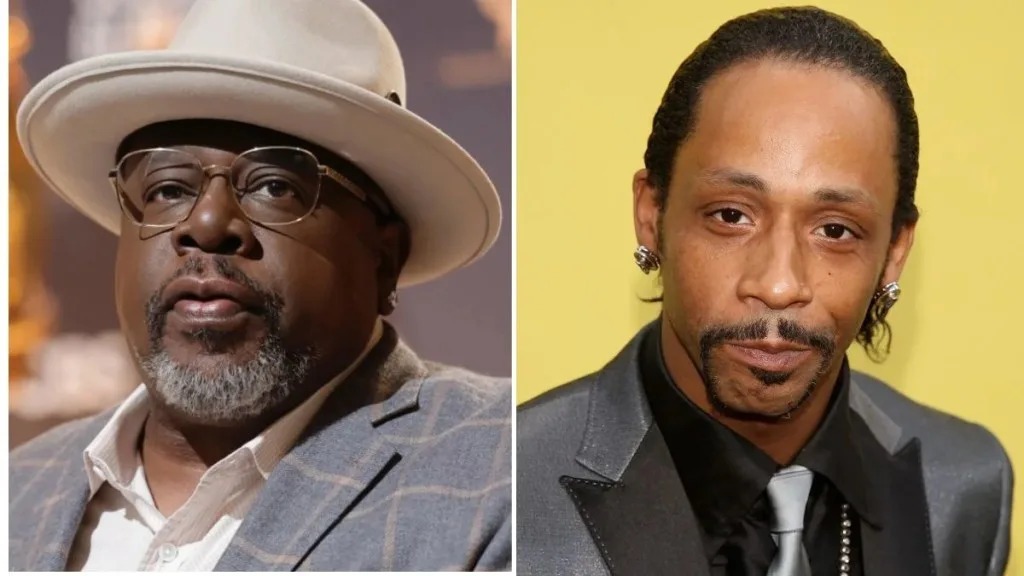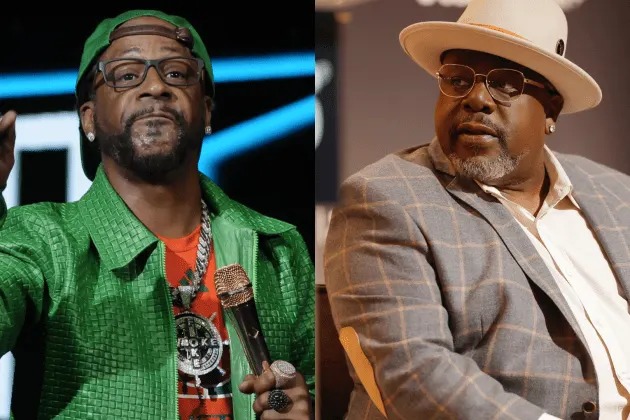# Katt Williams Exposes Cedric the Entertainer’s Alleged Deception

In a bombshell interview on Shannon Sharpe’s *Club Shay Shay* podcast, Katt Williams unleashed a scathing exposé on Cedric the Entertainer, accusing him of stealing a joke and revealing a hidden side to one of comedy’s most beloved figures. Williams claims this isn’t mere rivalry but a decades-long deception, backed by evidence that challenges Cedric’s wholesome public image.
The controversy traces back to 1998 at the Comedy Store, where Williams performed a standout routine about a car situation on BET’s *Comic View*. The joke, refined with comedian Mark Curry, was a crowd-pleaser, even featured in BET commercials. That night, Cedric was in the audience and complimented Williams backstage, seemingly genuine in his praise.
However, Williams alleges that two years later, in the 2000 *Original Kings of Comedy* special, Cedric performed the same joke verbatim as his closing bit, only changing the car to a spaceship. This, Williams asserts, was blatant theft of his signature material, a betrayal that cut deep given the sacred nature of a comedian’s best work.
What stings more, per Williams, is the aftermath. He claims Cedric and Steve Harvey privately apologized for the incident, leading him to stay silent for a decade out of respect for comedy’s unspoken code of trust.

Despite this, Cedric continued to benefit from the stolen material, building his career while Williams watched from the sidelines, his own recognition delayed. The pain compounded as Cedric’s success grew, partly on what Williams insists was his creation.
The breaking point came in 2022 when Cedric, on Sharpe’s podcast, dismissed Williams’ accusations as “internet stuff,” downplaying his credibility and denying the theft outright.
Williams calls this gaslighting, especially since Cedric knew the truth and had already apologized privately. Cedric’s defense relied on his established status, suggesting the timeline didn’t add up, a tactic Williams refutes with specific dates: his 1998 BET performances, the Comedy Store encounter, and the 2000 special.
Williams further alleges a broader pattern of behavior, claiming Cedric, Harvey, and Ricky Smiley formed a powerful alliance in comedy, protecting each other while appropriating others’ work and stories.

This group dynamic, he says, made speaking out risky, as challenging them meant facing an industry network, not just one person. Cedric’s response to the renewed accusations focused on deflecting, highlighting his 40+ movies and career rather than addressing specifics, a move Williams sees as avoiding accountability.
This saga raises uncomfortable questions about integrity in comedy. Williams’ detailed account—specific timelines, witnesses like Curry, and the unchanged joke structure—paints a damning picture.
Cedric’s lack of counterevidence and dismissive tone only fuel the narrative of deception. Should established comedians face harsher consequences for exploiting less powerful peers? Williams’ courage to speak, risking his own career, underscores a need for transparency in an industry often cloaked in friendly facades. What do you think about joke theft in comedy? Should there be stronger repercussions for such actions?

